Types of Flour & When to Use Them
There are many different types of flours and they all have different uses. Learn more about the types of flours, when to use them as well as some nutritional information on the different types of flour.
For the longest time, I would go to the grocery store and grab a bag of all-purpose flour for all my baking and cooking needs. Then came my passion for studying food and nutrition, and I became more aware of the variety of flours available at the grocery store.
Now that we know there is more than all-purpose flour at the grocery store, it can be overwhelming when trying to decide what flour would be best to use for a recipe and your health.
Here’s a breakdown of the latest and greatest flours you’ll find at the store, plus some nutritional differences between them all.
Popular Wheat Flours
100% Whole Wheat Flour
Whole wheat flour contains all parts of the grain: the germ, bran and endosperm; therefore, it is high in nutrients such as protein, fiber, vitamins and minerals.
It is also more absorbent than other flours and therefore, requires more liquid in recipes. Using whole wheat flour will result in stickier doughs that may be harder to work with and heavier, denser products.
White Whole Wheat Flour
Similar to 100% whole wheat flour (not bleached and contains all three parts of the grain), whole wheat flour is ground from a paler variety of wheat. It produces flour that is slightly sweet, milder in taste, and paler in color than 100% whole wheat flour, making it a great option for lighter baked goods.
All-Purpose Flour
A flour most commonly used by your parents and grandparents generation, AP flour is a tried and true for many. If a recipe requires, “flour,” as one of the ingredients, it’s generally referring to all-purpose flour.
Its nutritional quality is lower than 100% whole wheat flour because it only contains the germ.
Self-Rising Flour
Self-rising flour is the same as all-purpose flour but has salt and baking soda already added to its flour blend, making it great to use when making bread.
Pastry Flour
A type of refined flour that has a fine texture and is used when making baked goods, pie crusts, and breadsticks. There are different varieties of pastry flour; such as white pastry flour and whole wheat pastry flour.
Semolina Flour
Not as common as all-purpose or whole wheat flour, semolina flour is made from a type of wheat called durum. The grains are ground and sifted until only the toughest particles (highest in protein) are left, resulting in semolina flour. This type of flour is best used for pasta.
Non-Wheat Flours
These types of flours are gluten-free and made from other grains or plant sources other than wheat.
Almond Flour
Made from blanched and ground almonds, this flour is low in carbohydrates and high in protein and unsaturated fat (the good fat). It adds moisture and a nutty flavor to pastries and baked goods, but it does have a short shelf-life so pay close attention to the expiration date.
Oat Flour
This flour is made from ground oats and has a superfine and fluffy texture when raw. It can replace flour in most recipes and will provide your finished product with a rich, nutty flavor and denser texture.
Corn Flour
This type of flour is made from milling whole corn kernels and is best used for breading or blending with other types of flours in doughs.

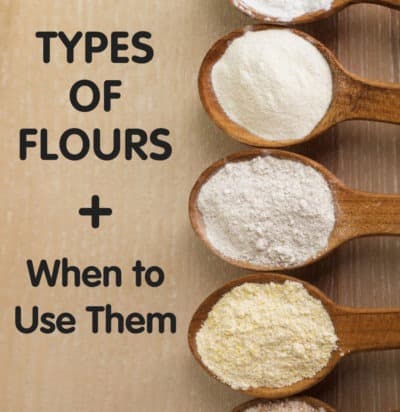
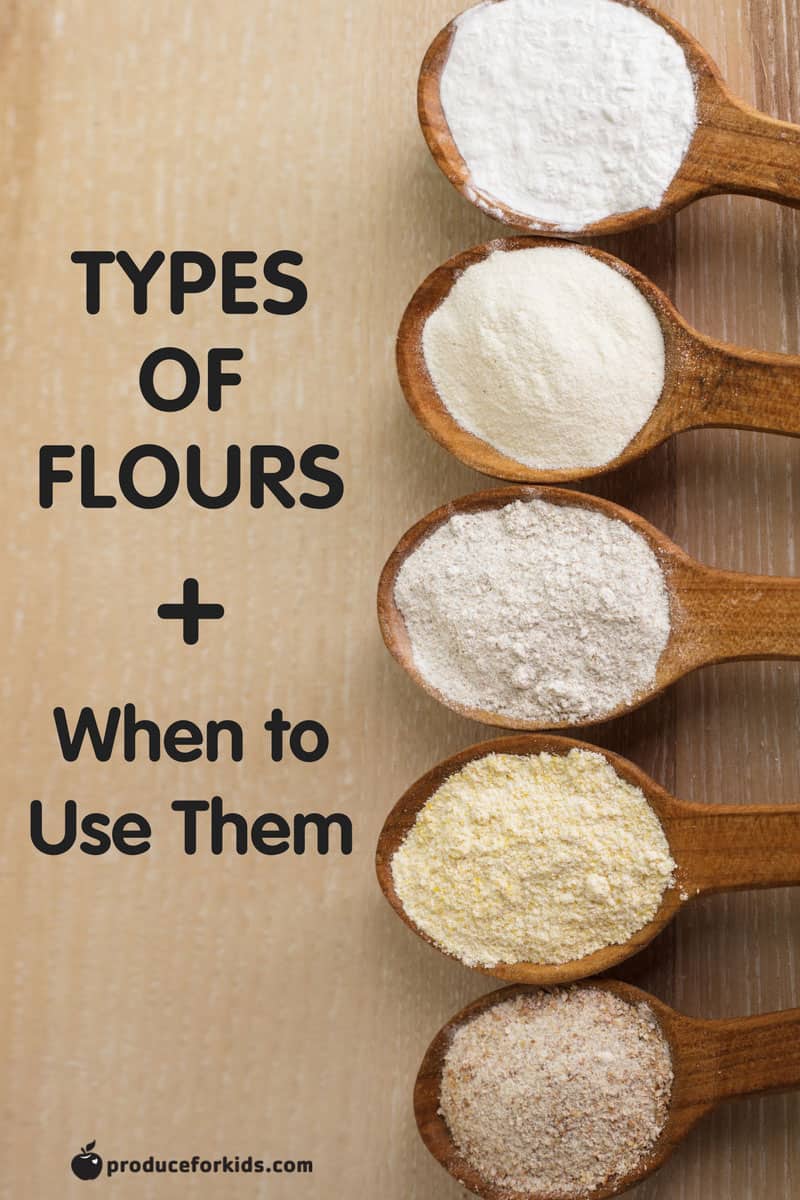







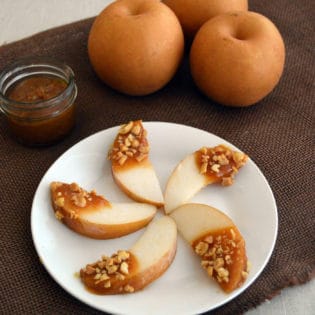
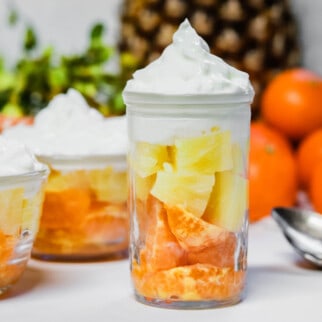
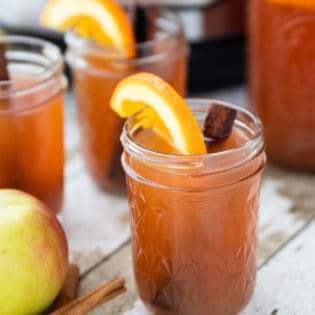

What’s wholemeal flour?
Hi Lana,
Whole wheat flour is the same as wholemeal flour. I believe they call it wholemeal in the UK vs. whole wheat here in the US.
What is a substitute for almond flour. Recipe calls for 21/2 cups all purpose and 1/2 cup almond flour.
Hi Betty,
Without knowing the recipes you’re referring to, it’s hard to say. Is this one of our recipes or from another site? I would always suggest checking with the recipe author about substitutions as they would know best. Here’s a helpful article on almond flour substitutions: https://www.laurafuentes.com/almond-flour-substitute/
– Amber
can i use strong bread flour for cake making?
A lighter flour like all-purpose, cake or pastry flour would best for cake. Bread flour is higher in gluten (which helps the bread rise). It wouldn’t be the best for a fluffy cake.
Where can I buy all purpose flour I live in Newcastle upon Tyne and the Morrisons and Tesco don’t know what I’m on about when asked for this all purpose flour!
Hi Gary,
I believe in the UK, all-purpose flour is known as plain flour. It’s your regular, everyday flour. Hope this helps!
– Amber
Organic All Purpose Flour Unbleached. How does it compare to the others you mentioned. I have Hypothyroidism and am trying to cut back on unhealthy carbs.
Hi Frances,
If you’re usually an all purpose white flour user, try the white whole wheat flour. It has a milder taste than whole wheat flour and still contains protein, fiber and whole grains. Whole grains reduce risks of heart disease, stroke, cancer, diabetes and obesity so it’s important to have them in your diet unless told otherwise by your doctor. We suggest always speaking with your doctor about which food to avoid or consume more of as it relates to your specific diagnosis.
Thanks!